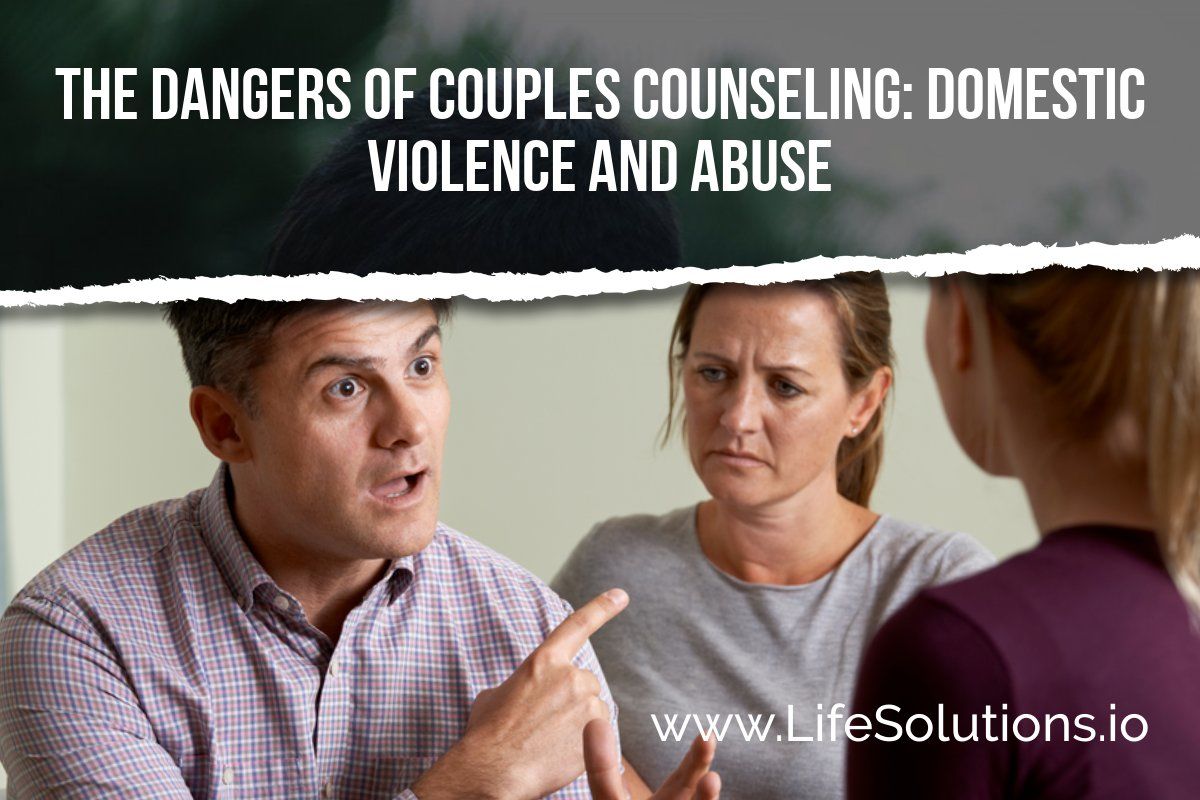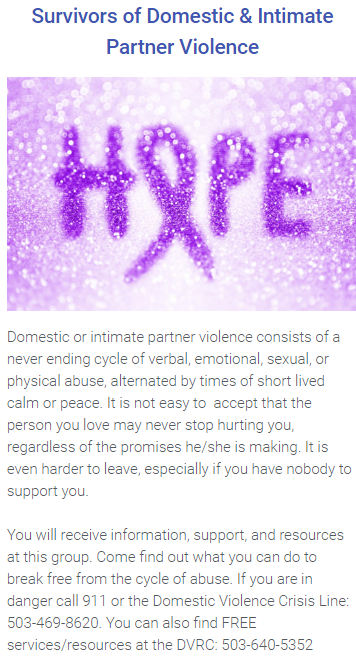Some couples try couples counseling when there is abuse or violence in their relationship. Unfortunately it is not likely to help, on the contrary, it can make things worse. Experts in the field of domestic violence and abuse do not recommend couples counseling in an abusive relationship.
Below are some of the questions clients often ask me when I warn them against couples counseling:
We both have issues, why should we not see a couple’s therapist?
In a relationship where there is no abuse, both partners usually contribute to the difficulty or problem in various degrees. The solution is then for them to work on their relationship together. However, in the case of abuse, the victim is not to blame for the abuser’s behavior. The same is true for someone with an addiction. Yes, the victim is not necessarily blameless in the relationship, but the victim is blameless where another person’s abusive behavior is concerned. All couples argue, disagree, and face difficulties, but it does not give anybody an excuse to become violent or abusive.
Why does the abuse have to stop first? What about the other issues?
Again, as in the case of a partner who has an addiction, the abusive partner needs to get help first to STOP the abusive behavior, before any other issues can be discussed. The issues of abuse is all consuming, progressive, and lethal. If other issues are discussed first, it gives the abusive partner a smokescreen to hide behind while continuing the abuse. Many abusers are charming and charismatic which may cause the counselor to miss important clues that may point to abuse.

Can a couples counselor make things worse?
Yes, but not on purpose: As counselors we vow to “do no harm”, and couples counselors do what is best for their client, which is ‘the couple’. An effective couples counselor is not supposed to to take sides or favor one partner over another. So one of two things are likely to happen in couples counseling:
First: In an attempt to be fair to both partners, the counselor may unknowingly aid in blaming the victim (who is already self blaming) and strengthening the abusive partner’s denial. This will cause the violence to continue, and even escalate, as the abusive partner may be twisting the counselor’s comments or observations at home in order to justify the abuse.
Second: A brave counselor may confront the abusive partner, but this is a risky move. If the experience causes the abuser anger and shame, they will most likely never return to counseling. It can also cause the violence to drastically escalate at home. The abusive partner may feel that the victim conspired with the counselor even if it was not true at all. An abusive partner should ONLY be challenged in batterers intervention groups, or in individual counseling, never in couples counseling. This can become a volatile and potentially life threatening situation for the victim and even the counselor.
What if the victim does not say what is really going on?
This is exactly the point: Counseling needs to be a safe place where people can reveal painful and sensitive issues such as domestic violence. When the abuser is sitting right there, the victim is not likely to say anything incriminating that may escalate the violence once they leave the counselor’s office. So the counselor will at best get a minimized version of the story from the victim, or at worst an outright lie from the abusive partner. This makes it very difficult, if not impossible, to work with the couple.
What if the victim feels safe enough to tell the truth?
It is even more dangerous. A false sense of safety while in the counseling room may cause a victim to reveal the abuse, thinking that the counselor can guarantee their safety. Unfortunately this is not true, there is not much that a counselor can do in that moment. Yes the police can be contacted if things get out of control, but in most instances the abusive partner will pretend that all is well and retaliate only once they leave the counseling office.
Could couples counseling help a little?
If anything, couples counseling prolongs the inevitable by giving the victim false guilt (it’s my fault) and false hope (maybe everything will change if I change). It can cause them to go around the same maddening cycle for longer than necessary. When it comes to abuse TIME IS CRUCIAL. The victim should not stay one minute longer than is necessary. In fact everything should be done to give the victim as much information and support as possible. They may not be ready to leave yet, but once they are ready the danger escalates, and minutes could mean the difference between life and death



